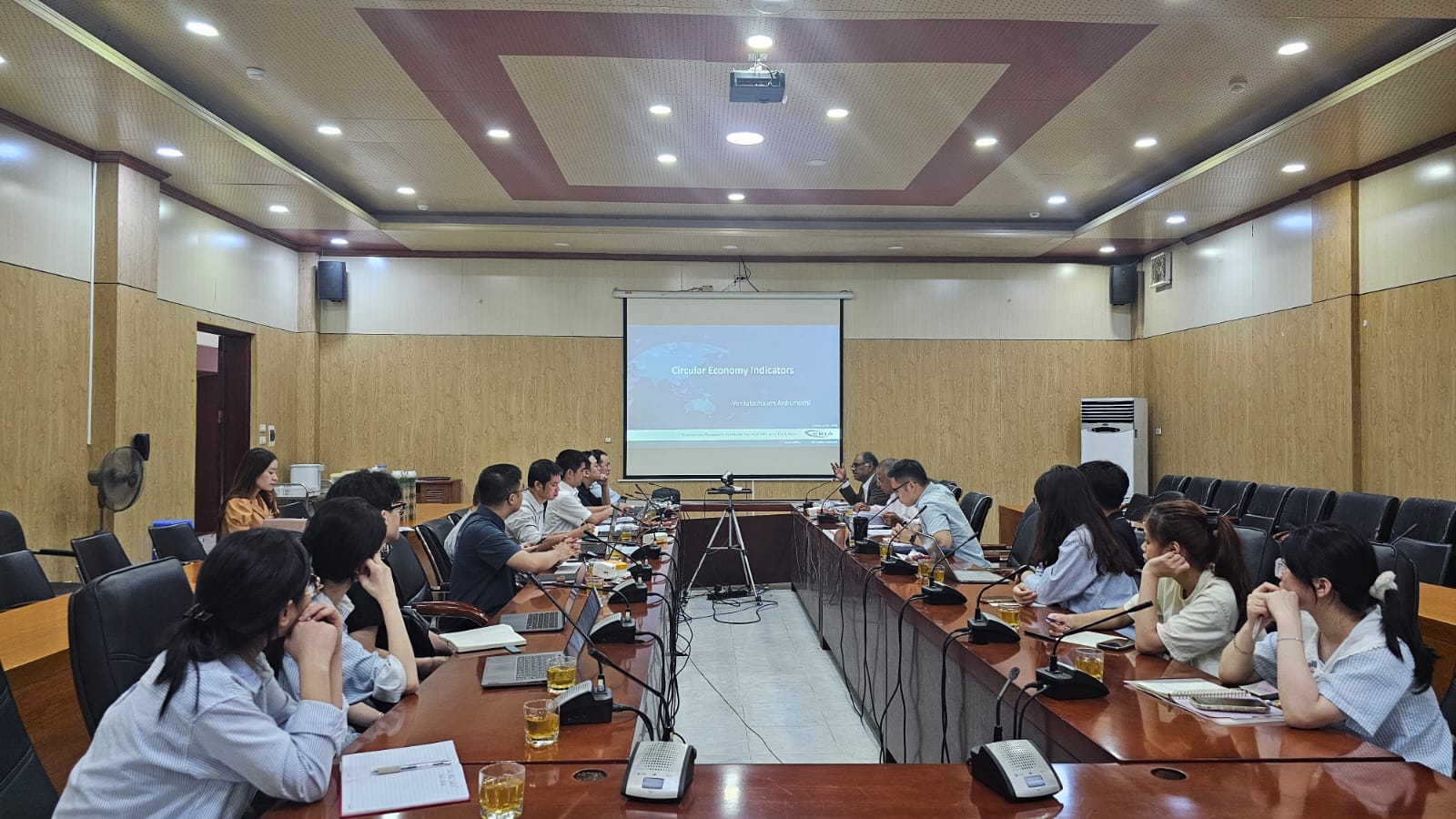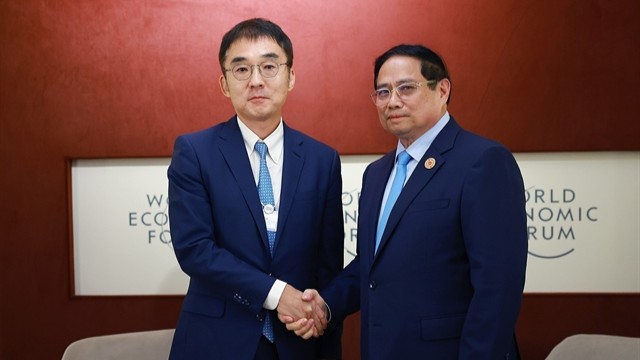Can Glasgow COP 26 Save the Planet? Transforming Climate Fatigue into People Centric Climate Actions
Date:
4 November 2021Category:
OpinionsTopics:
ASEAN, Energy, EnvironmentShare Article:
Print Article:
By Dr Venkatachalam Anbumozhi, Director of Research Strategy and Innovation, Economic Research Institute for ASEAN and East Asia (ERIA):
The 26th Session of the Conference of Parties (COP 26) in Glasgow started this Sunday and the negotiations on achieving Net Zero emission by 2050 are heating up. The International Panel on Climate Change (IPCC) has underscored that unless immediate climate actions to reduce Green House Gas (GHG) emissions are taken, the earth’s temperature is set to raise 2.7 degrees centigrade within this century. But the global negotiations in Glasgow must operate as per the principles of United Nations Framework Convention on Climate Change (UNFCC), including equity among the negotiating parties and common but differentiated responsibilities (CBDR).
Can COP 26 save the Climate? No one would argue against the idea of all countries working together to promote the common good of saving the planet. According to the 4th IPCC climate assessment report, limiting the global average temperature increase to the Paris Climate goal of 2 degrees centigrade requires a 25% reduction in GHG emissions by 2030. However, it turns out that mobilizing sufficient numbers to invest in meeting the nationally determined contributions (NDCs) is easier said than done. Countries have enough to worry about besides climate change: pandemic crisis, energy security, constraints to open trade, geo-political strife etc. In the face of these mounting concerns, there is a risk that constantly discussing our shared responsibility for tackling climate change may even have the opposite effect, and that ‘climate fatigue’ will result in people lowering the sights. Leaders need to deliver, as the time has passed for diplomatic niceties.
Interestingly, even the Covid -19 global pandemic-induced economic downturn did not alleviate the climate crisis. As of now, more than 80 countries have pledged or are discussing the ways to meet Netâ€Zero Emissions targets. In the region, Japan and the Republic of Korea have joined the pledge for the net zero emission by 2050, while China aims to achieve net zero emission by 2060. Singapore has also announced an ambitious plan to achieve Net Zero emission beyond 2050. Although many Association of South East Asia Nations (ASEAN) member states have yet to set any specific target for net zero emission, several of them are working hard to redesign their policies to meet the NDC targets. Globally, twelve countries the plus European Union have enshrined the net zero emission targets into national laws.
The key to restoring the appetite for concerted action by developing countries to tackle climate change could lie in demystifying climate change by shifting the negotiations from a generic discussion of carbon emissions and climate towards the tangible benefits of moving from a linear to a circular society, where the smart reuse of resources - starting with energy - creates a competitive economy centered on the long term good. Rather than following current resource intensive consumption, future climate actions should aim for co-benefits with lower initial investment cost. In other words, there is a need to engage the society in a narrative that highlights the very real benefits of a low carbon future – benefits that are derived on both personal and a collective level.
For a resource rich region like ASEAN, which is highly vulnerable to climate risks, climate change adaptation challenges cannot be delinked from mitigation efforts.
It is often argued that funding is limited for climate action considering the pandemic’s impact and subsequent massive government deficits and high levels of unemployment. The Energy and Climate Intelligence Unit of the United Kingdom has estimated that by roughly doubling the global rate of annual improvement in energy efficiency from 1.3 to about 3 percent per annum by 2030 would reduce the global energy bill by USD 2.1 trillion per annum. Making climate-smart infrastructure could create six million jobs by 2030, thereby reducing unemployment. Persuasive figures - so where to start to capture these gains?
ERIA’s recent study on Rethinking Low Carbon Green Growth in the post Covid World: Towards Net Zero Economy, proposes three key points of action.
First, there is a need for clear, long-term policy frameworks in the post covid-19 era as a part of stimulus recovery. This will send the right market signals and help speed the development and uptake of low-carbon, resource efficient and carbon capturing and utilization technologies.
Second, investment must be scaled up. Mobilization of the private sector, including development banks, institutional investors, and bond markets, is crucial to the financing of low-carbon green growth initiatives. Public financing and development aid are also critical for leveraging the private capital and meet the Paris climate targets.
And third, stronger international cooperation is needed to effectively share knowledge, technology, and finance and to coordinate action leading to the effective implementation of strategies such as the ASEAN Comprehensive Recovery Framework (ACRF).
The above measures are not just about helping to save the planet. They are also about creating a prosperous and inclusive future in which people enjoy the best possible quality of life. Governments across the world have deployed a significant amount of emergency capital in response to the pandemic, with an initial focus on protecting lives and livelihoods. As countries around the world are struggling to repair their pandemic battered economies, resetting policy measures towards climate actions is a once in a generation opportunity for implementing hard reforms that will require technology, regulatory policy, and financing innovations simultaneously.
It is therefore in our own economic interests to take an ambitious approach to the COP 26 negotiations on the Net Zero Economy in Glasgow. That way, we can do the right things for our planet’s future, in the knowledge that the economy and citizens will be the first to benefit. The real question is: do we have the determined vision to see the light and embrace the opportunity at hand with conviction, ambition and commitment.
This opinion piece was written by ERIA's Director of Research Strategy and Innovation and has been published in Market Screener, Global China Daily, Borneo Bulletin. Click here to subscribe to the monthly newsletter.








